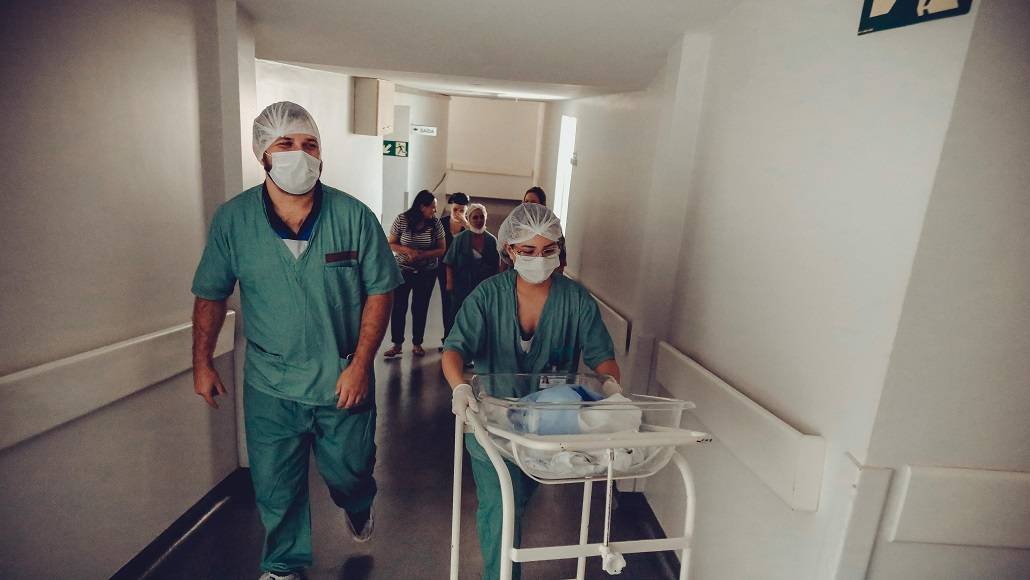Along with multiple public health crises, the United States is also facing a nursing shortage, especially in rural parts of America. This problem is also exacerbated by rising costs, turnover, and competition in recruiting healthcare professionals. The factors contributing to the nursing shortage in the United States, particularly in rural areas, were accelerated by the pandemic. Studies show the pandemic worsened the national nursing shortage.
For new nurses who have completed their online MSN FNP program, the rural nursing shortage can be a good opportunity. Rural medical centers are a great chance to get real-life experience in the industry and help out communities in need.
If you’re interested in working as a nurse in a rural area, this article aims to identify the regions most impacted by the shortage and in need of nursing professionals.
What is the nursing shortage?
The United States is projected to experience a shortage of registered nurses (RNs) nationwide. This is compounded by various factors, such as the country’s aging population, nursing schools struggling to expand capacity, and the rising demand.
Although there was a national shortage of nurses before COVID-19, the situation worsened after the pandemic. In particular, the situation has become dire in rural communities, which were already experiencing difficulties in hiring and retaining nurses. This is a problem in particular because rural hospitals and clinics serve populations that tend to be older and sicker on average. These hospitals and clinics are having to treat more complex health conditions with fewer staff and reduced resources.
Statistics from the Rural Health Information Hub reveal that two-thirds (66.33%) of Primary Care Health Professional Shortage Areas (HPSAs) are located in rural areas.
HPSAs are linked to numerous negative outcomes, including:
- Workers experiencing burnout and/or dissatisfaction.
- Children living in HPSAs are at increased risk of graft failure.
- Children living in HPSAs are at higher risk of death after liver transplants.
- HPSAs are linked to a higher prevalence of chronic diseases.
- Staff shortages can also lead to negative patient outcomes.
- Residents living in HPSAs are more likely to report worse health status and difficulty accessing care.
Nursing staff in a rural community can be the difference between life and death. In many rural areas, it is not feasible to travel to another town or city for care, which is why the rural communities need to have adequate staffing levels.

The contributing factors
The rural nursing shortage is caused by the same factors contributing to the nationwide staffing shortage. It’s also compounded by the fact that many early-career nurses avoid rural communities because:
- Having limited career progression opportunities
- A lack of access to adequate training and resources
- Distance from social and familial support networks
- Rural lifestyle considerations
Depending on the region, some rural locations may also offer salaries that aren’t as competitive as urban areas. Some of the other factors contributing to the nation’s overall nursing shortage include:
- An aging population: Over 51% of the current nursing workforce is aged 40 or over. The workforce is aging, with many considering retirement, and their numbers aren’t being replenished by new graduates.
- Workplace violence: Violence against healthcare workers has intensified since the COVID-19 pandemic. Nurses are being subjected to unprecedented levels of aggression, making the career pathway unappealing.
- Emotional burnout: The number of nurses experiencing emotional burnout hit an all-time high during the COVID-19 pandemic, and the impact is still ongoing. It has resulted in many nurses retiring or changing career paths.
- Low salary: With the cost of living rising and poor working conditions, it is luring current nurses away from the industry and turning away potential students. Many other professions, even in healthcare, offer better salaries and are less stressful.
Rural areas that are facing staff shortages
If you’re a newly registered nurse, the rural staff shortages can be a great opportunity to gain valuable experience and help communities that need it most. Statistics show that in rural public health systems, there is approximately just one full-time equivalent public health nurse for every 6000 people.
Similarly, research has found that patients living in rural and remote areas tend to experience higher mortality rates and have more complex health issues. While this poses a unique challenge, it can be a great hands-on experience for a new nurse.
Working in a rural or remote area can also be exciting if you prefer a rural lifestyle and the appeal of a tight-knit community. Below is a list of a few rural areas that have the greatest opportunities for nurses, according to NursingEducation and the U.S. Bureau of Labor Statistics.
- Southern Vermont
- South Nebraska
- Southeast Missouri
- Southwest Maine
- Eastern Ohio
- Northeast Maine
- Southeast Mississippi
- Southwest Iowa
- East Kentucky
These regions currently have the most job opportunities for registered nurses. Rural areas can also offer more job stability than urban environments due to increased demand.
Why we need more nurses
Nurses are the backbone of healthcare. They play a critical role in the delivery of services and also make up the largest section of the health profession. Unfortunately, the United States is experiencing a nursing shortage, leaving it unprepared for the health crises it is facing.
According to the U.S. Bureau of Labor Statistics, there will need to be more than 275,000 additional nurses employed from 2020 to 2030. Currently, the country isn’t close to filling the gaps.
These numbers must be filled, as nurses are essential to combating the nation’s multiple health crises, including:
- The aging population
- Mental health crisis
- Rising substance use
- Infectious disease outbreaks
- Declining immunization rates
Although it won’t solve the overall nursing shortage and the above-listed crises, if you’re a nurse considering moving to a rural area, it does contribute to the solution. It helps support the most vulnerable communities in the country, providing healthcare to people who need it most.




















